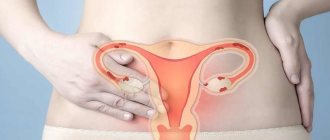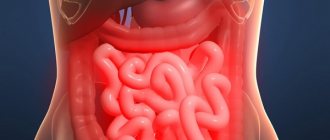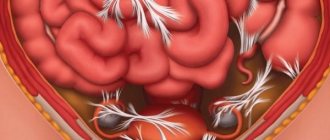The gastrointestinal tract (digestive tract) is a system of organs that are designed to process food and absorb nutrients. This system includes the mouth, pharynx, esophagus, stomach, small intestine, colon and rectum.
The main functions of the digestive system are:
- motor-mechanical (breakdown of food, its promotion and removal from the body),
- secretory (production of the necessary enzymes for complete digestion),
- absorption (absorption of liquid and necessary substances).
The most common diseases of the gastrointestinal tract include gastritis, colitis, stomach and duodenal ulcers, dysbacteriosis, appendicitis, hemorrhoids and others.
Historical reference
Psychosomatics is a direction in medicine and psychology that studies how psychological factors influence physical health. This term was coined by the German psychologist Johann Christian Heinroth in 1918, but he is far from the first to establish a connection between mental and physical states. Proponents of this theory were the philosophers Socrates and Plato, who believed that the soul and body are inseparable. The ancient Greek physician Hippocrates insisted that when treating any illness, it is worth eliminating its root cause - psychological problems.
The theory was revived in the 20th century, thanks to the scientific works of Sigmund Freud and Franz Gabriel Alexander. Famous psychoanalysts believed that suppressed emotions affect physical health. Modern medicine pays a lot of attention to studying the influence of social problems, stress and various external factors on the development of many diseases. Observations have shown that people with certain diseases have similar temperaments and the same psycho-emotional reactions, and up to 40% of all diseases are directly related to psychological problems.
Valery Sinelnikov's opinion on stomach and duodenal ulcers
The views of the Ukrainian homeopath and psychotherapist were formed on the basis of the works of Louise Hay, after studying NLP, Zen Buddhism, yoga and Taoism. Valery Vladimirovich Sinelnikov considers the main remedy for diseases to be bringing a person’s thoughts and worldview to the “laws of the Universe,” the main of which are pure thoughts.
Psychosomatics of stomach ulcers according to Sinelnikov in the book “Love your illness”:
- lack of understanding of how to assimilate life;
- constant worries and fears;
- irritation;
- hostility;
- feeling of uncertainty;
- doom;
- fear of everything new;
- feeling of inferiority, inferiority;
- "self-criticism";
- fear of not being able to do something;
- disgust;
- rejection of people and the surrounding world.
To heal the disease at the mental level, Valery Vladimirovich recommends reconsidering your thoughts and worldview, creating new models of behavior and perception of others. The best emotional qualities for stabilizing health in this case are love and calm.
Recommendations from the author of the book for curing stomach and duodenal ulcers:
- learn to enjoy life;
- accept yourself and the world around you as it is;
- develop a sense of love for yourself and people;
- learn to master and assimilate new things.
The relationship between the spiritual and the physical
Psychosomatic theory considers three basic groups of diseases: conversion symptoms, functional syndromes and psychosomatism. They cause certain reactions of the body, from pain in a specific organ and various symptoms of several diseases, to the development of pathologies of individual organs and systems. The group of diseases that belong to psychosomatism poses the greatest danger because it leads to the occurrence of chronic ailments. There are seven main psychosomatisms, which include intestinal problems:
View this post on Instagram
Good afternoon friends! today in the section #theoryofpsychosomatics20 - intestinal obstruction or constipation. Let us tell you what conflicts contribute to this disease. We will be glad to hear your questions in the comments under the post. Thank you for ❤ So, let's get started.











